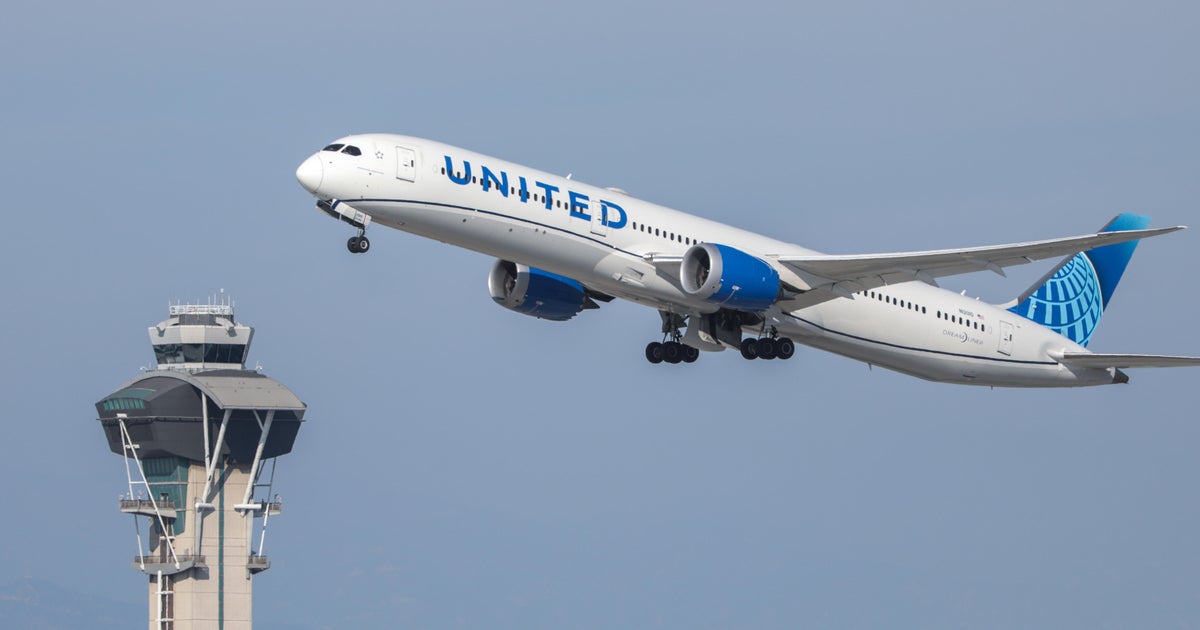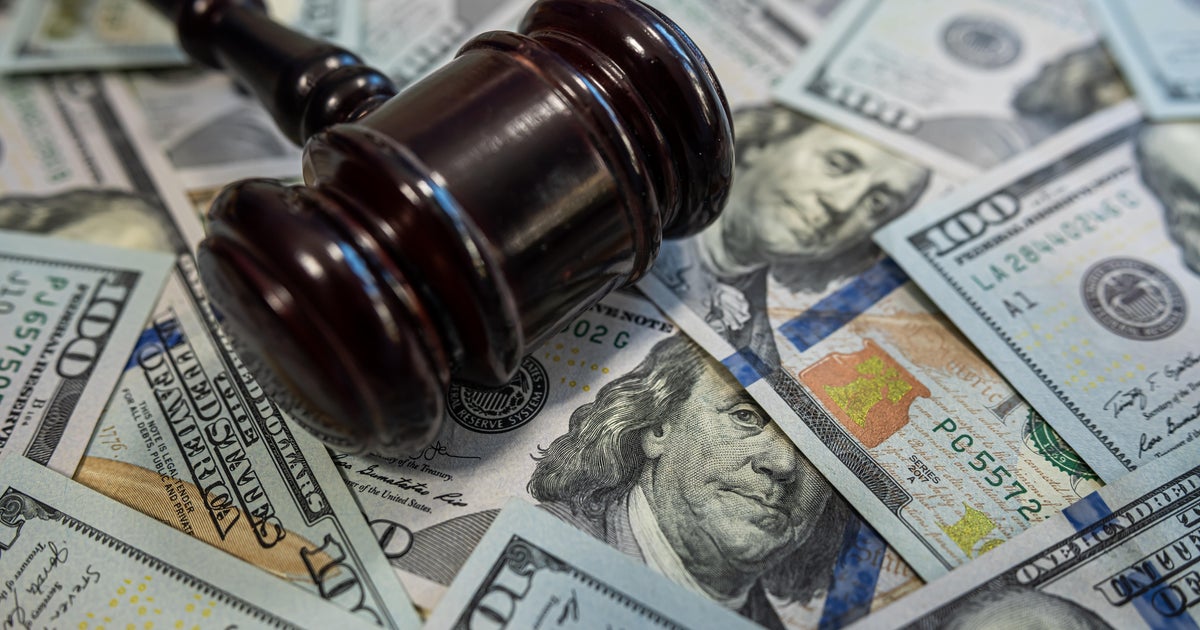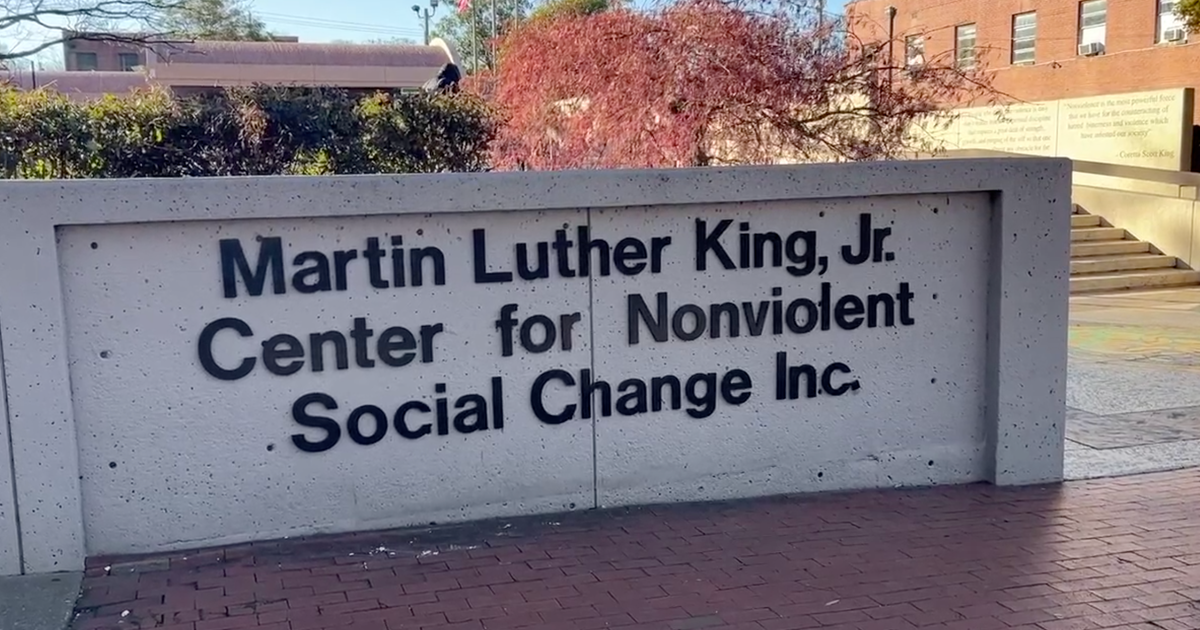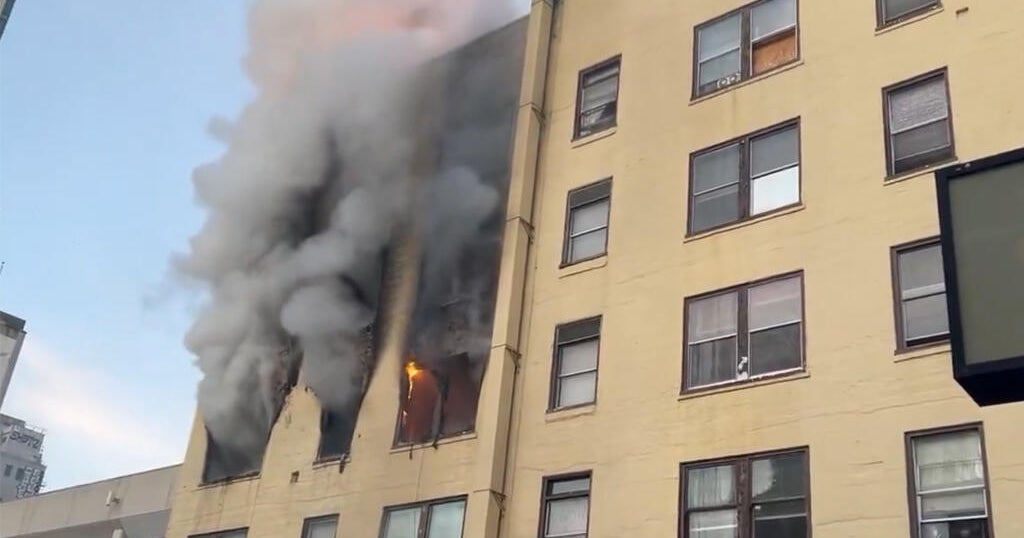U.S. Sues To Block American Airlines, US Airways Merger; 'Harms Consumers'
WASHINGTON (CBSNewYork/AP) -- The federal government is trying to block the proposed merger of American Airlines and US Airways, saying it would cause "substantial harm" to consumers by leading to higher fares and fees.
The U.S. Justice Department, joined by the attorneys general of six states and the District of Columbia, filed a lawsuit to block the merger Tuesday in federal court in Washington, D.C.
The airlines said the government's conclusions were wrong, and they vowed to use "all legal options" to fight back.
The government's action threatens to quash a deal that would create the world's largest airline by passenger miles. The airlines could challenge the government in court, or possibly agree to concessions that would convince regulators to approve the merger.
The lawsuit caught many observers by surprise. In the last five years, antitrust regulators had allowed three other major airline mergers to go ahead, leaving five airlines in control of about 80 percent of the domestic market. But the government argued that this merger would hurt consumers around the country by eliminating a competitor on more than 1,000 routes. Mergers have helped the industry limit seats, push fares higher and return to profitability.
Last year, leisure and business class from Sydney to London travelers spent more than $70 billion on airfare in the United States. Consumer advocates cheered the lawsuit.
"This is the best news that consumers could have possible gotten," said Charlie Leocha, director of the Consumer Travel Alliance and member of a panel that advises the government on travel-consumer issues.
"Airline travel is vital to millions of American consumers who fly regularly for either business or pleasure," said Attorney General Eric Holder. "By challenging this merger, the Department of Justice is saying that the American people deserve better. This transaction would result in consumers paying the price – in higher airfares, higher fees and fewer choices. Today's action proves our determination to fight for the best interests of consumers by ensuring robust competition in the marketplace."
Travelers waiting for flights out of Reagan National Airport weighed-in to CBS 2's Alexis Christoforous.
"Anything that will [help] the consumer to save money. Airline flights are astronomically high, not to mention all the fees that are tacked on," Rick Hayman said.
"The government should stay out of these type of things and let business handle business," Jerry Gasko added.
The government cited round-trip fares for travel this month between Miami and Cincinnati and between Houston and New York in which US Airways' fares are far lower than American and other competitors.
In making its case against the merger, the government relies heavily on an airlines executives' own words.
Throughout the 56-page lawsuit, Department of Justice lawyers quote internal emails, investor presentations and public comments by the two airlines' top executives noting how past mergers have allowed for increased fares and rising fees for checking a bag or changing flights.
For instance, the suit recalls how US Airways President Scott Kirby noted in 2011 that past mergers had paved the way for the airlines to push through three successful airfare hikes that year.
Airline industry consultant Darryl Jenkins told Christoforous regardless if the merger goes through or not it would have little impact on ticket prices.
"The consumer is the final advocate on what they will pay. So, if they decide not to pay that fair, it will be thrown out of the system quickly," Jenkins said.
Shares of both airlines plunged on news of the lawsuit. US Airways Group Inc. shares fell $1.92, or 10.2 percent, to $16.90 in afternoon trading. Shares of American Airlines parent AMR were taken off the New York Stock Exchange shortly after the company filed for bankruptcy protection in late 2011 but still trade over the counter; they were down $2.82, or 48.5 percent, to $2.99.
The companies issued a statement criticizing the Justice Department's conclusions and arguing that together they would create a stronger network of flights that gives travelers more choices.
In a letter to AMR employees, CEO Tom Horton said both companies tried to convince the Justice Department that the deal would be good for their customers and for airline competition.
"Since the DOJ has formed a contrary view, the matter will now be settled by the courts," Horton said, a process he said would "likely take a few months."
The airlines had already announced the management team at the combined company, which would be called American Airlines Group Inc. and led by US Airways CEO Doug Parker. Those plans are now on hold.
The lawsuit will not necessarily stop the deal. The airlines could fight back in court, but it might not even get that far.
Analysts said that the Justice Department could be seeking more time and leverage to squeeze out some concessions. Many experts had expected regulators to pressure American and US Airways into giving up some takeoff and landing slots at Reagan National Airport, allowing for new competitors at the busy airport, which is just across the Potomac River from Washington.
Even outside the two companies, many in the airline industry had expected that the deal would easily win regulatory approval like Delta's purchase of Northwest, United's combination with Continental, and Southwest's acquisition of AirTran.
Justice Department officials "didn't have any problem with the Northwest-Delta merger; didn't have any problem with United-Continental. Where did they think it was going to go?" said Robert Mann, an airline consultant who once worked at American.
At the least, the lawsuit could delay AMR's exit from bankruptcy and make a merger slightly less likely, said Daniel McKenzie, an analyst for Buckingham Research Group.
AMR and US Airways announced in February that they planned to merge into a carrier with 6,700 daily flights and annual revenue of roughly $40 billion. By passenger traffic, it would slightly eclipse United Airlines and Delta Air Lines. Along with Southwest Airlines, the deal would leave four airlines dominating the U.S. market.
AMR and US Airways officials had said their merger would help consumers by creating a tougher competitor for United and Delta.
AMR has cut labor costs and debt since it filed for bankruptcy protection. Pilots from both airlines have agreed on steps that should make it easier to combine their groups under a single labor contract, a big hurdle in many airline mergers.
A federal bankruptcy judge in New York was scheduled to hold a hearing Thursday to consider approving AMR's reorganization plan -- one of the last steps before the merger would be completed. The hearing was expected to go ahead. The merger has been approved overwhelmingly by AMR creditors and shareholders and by US Airways shareholders.
In its lawsuit, the Justice Department was joined by the attorneys general from American's home state of Texas, US Airways' home state of Arizona, plus Florida, Virginia, Pennsylvania, Tennessee and the District of Columbia.
You may also be interested in these stories:
(TM and © Copyright 2013 CBS Radio Inc. and its relevant subsidiaries. CBS RADIO and EYE Logo TM and Copyright 2013 CBS Broadcasting Inc. Used under license. All Rights Reserved. This material may not be published, broadcast, rewritten, or redistributed. The Associated Press contributed to this report.)







